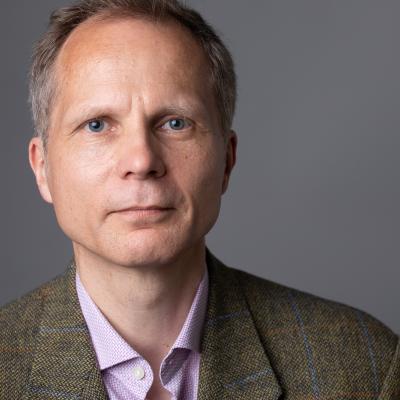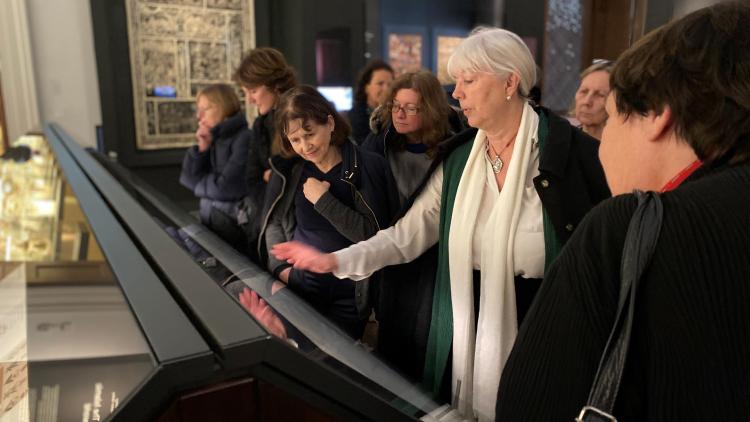BA Korean


Key information
- Start date
- Duration
- 4
- Start of programme
- September
- Attendance mode
- Full Time
- Location
- SOAS on Campus
- Fees
-
Home student fees: £9,250
Overseas student fees: £21,990Please note that fees go up each year.
See undergraduate fees for further details. - Course code
- T415
- Entry requirements
-
ABB
Contextual: BBB
-
Austria: Reifeprufungszeugnis / Maturazeugnis: four subjects at 1, 2, 2, 2
A Level equivalent: ABB
Contextualised offer: BBB -
Belgium: Diploma van Secundair Onderwijs: 75% (7.5/10, 15/20) overall
A Level equivalent: ABB
Contextualised offer: BBBInformation for prospective students from Belgium
-
Bulgaria: Diploma za Zavarsheno Sredno Obrazovanie: 5.3 and 5.0 in two State Maturity Exams
A Level equivalent: ABB
Contextualised offer: BBB -
Canada: High School Diploma: 80% with 5 acceptable Grade 12 subjects (most territories).
British Columbia: AABBB in Grade 12 courses.A Level equivalent: ABB
Contextualised offer: BBBInformation for prospective students from Canada
-
China: Senior Secondary Graduation Certificate + Gaokao: 78% overall in Gaokao PLUS 85% overall in Senior Secondary School Graduation Certificate (year 11 and 12)
A Level equivalent: ABB
Contextualised offer: BBBInformation for prospective students from China
-
Croatia: Matura Certificate: 4.5 overall with 5 in 1 Higher level subject
A Level equivalent: ABB
Contextualised offer: BBB -
Cyprus: Apolytirion with 2 A-Levels: Apolytirion 18/20 + A-level grades BB
A Level equivalent: ABB
Contextualised offer: BBB -
Czech Republic: Matura Certificate: 1, 2, 2, 2
A Level equivalent: ABB
Contextualised offer: BBB -
Denmark: Studentereksamen; Hojere Forberedelseseksamen; Hojere Handelseksamen; Hojere Teknisk Eksamen: 7 plus 10, 7, 7 in three Level A subjects
A Level equivalent: ABB
Contextualised offer: BBBInformation for prospective students from Denmark
-
Estonia: Gümnaasiumi lõputunnistus with the Riigieksamitunnistus: 4.0 with 85%, 80%, and 80% in 3 state exams
A Level equivalent: ABB
Contextualised offer: BBB -
Finland: Ylioppilastukint / Studentexamen: four subjects at 6, 5, 5, 5
A Level equivalent: ABB
Contextualised offer: BBB -
France: French Baccalaureat or Option Internationale du Baccalauréat (OIB): 13/20
A Level equivalent: ABB
Contextualised offer: BBBInformation for prospective students from France
-
Germany: Abitur: 1.8
A Level equivalent: ABB
Contextualised offer: BBBInformation for prospective students from Germany
-
Greece: Apolytirion of Geniko Lykeio with Pan Hellenic exams: 18/20
A Level equivalent: ABB
Contextualised offer: BBBInformation for prospective students from Greece
-
Hong Kong: Hong Kong Diploma of Secondary Education: 544 in two electives and one core (all other subjects grade 3)
A Level equivalent: ABB
Contextualised offer: BBBInformation for prospective students from Hong Kong
-
Hungary: Matura (Erettségi): 4.5 overall
A Level equivalent: ABB
Contextualised offer: BBB -
Iceland: Stúdentspróf: 7.5
A Level equivalent: ABB
Contextualised offer: BBB -
India: Standard XII: 75% (CBSE, CISCE, Tamil Nadu, Maharashtra & West Bengal boards), 80% (all other state boards)
A Level equivalent: ABB
Contextualised offer: BBBInformation for prospective students from India
-
Ireland: Irish Leaving Certificate: H1, H2, H2, H3, H3
A Level equivalent: ABB
Contextualised offer: BBB -
Israel: Bagrut: Overall grade of 7, 80% with 3 subjects at 5-unit level
A Level equivalent: ABB
Contextualised offer: BBBInformation for prospective students from Israel
-
Italy: Diploma Consequito con L’Esame di Stato: 80% overall
A Level equivalent: ABB
Contextualised offer: BBBInformation for prospective students from Italy
-
Latvia: Certificate of General Secondary Education: 88% in four State subject exams
A Level equivalent: ABB
Contextualised offer: BBB -
Lithuania: Brandos Atestatas: 8.5/10 and 90%, 85%, 85% in three State Exam
A Level equivalent: ABB
Contextualised offer: BBBInformation for prospective students from Lithuania
-
Malta: Advanced Matriculation Certificate: AB (Advanced) + BBB (Intermediate)
A Level equivalent: ABB
Contextualised offer: BBB -
Netherlands: Voorbereidend Wetenschappelijk Onderwijs: 7.5 overall with 8, 8, 7, 7 in four subjects
A Level equivalent: ABB
Contextualised offer: BBB -
Norway: Vitnemål vidergaende opplaering: 4.3 overall
A Level equivalent: ABB
Contextualised offer: BBBInformation for prospective students from Norway
-
Poland: New Polish Matura: 75% in three Advanced Level subjects
A Level equivalent: ABB
Contextualised offer: BBBInformation for prospective students from Poland
-
Portugal: Diploma de Ensino Secundario: overall 17.5/20
A Level equivalent: ABB
Contextualised offer: BBB -
Romania: Diploma de Bacalaureat: 8.5 overall
A Level equivalent: ABB
Contextualised offer: BBBInformation for prospective students from Romania
-
Singapore: Polytechnic Diploma (Nanyang, Ngee Ann, Singapore, Temasek and Republic Polytechnic): GPA 3.3
A Level equivalent: ABB
Contextualised offer: BBBInformation for prospective students from Singapore
-
Slovakia: Maturitná skúška / Maturita / Vysvedčenie o maturitnej skúške: four subjects at 1, 2, 2, 2
A Level equivalent: ABB
Contextualised offer: BBB -
South Africa: National Senior Certificate: 77666
A Level equivalent: ABB
Contextualised offer: BBBInformation for prospective students from South Africa
-
Spain: Curso de Orientación Universitaria / Título de Bachillerato: 7.5
A Level equivalent: ABB
Contextualised offer: BBBInformation for prospective students from Spain
-
Sweden: Slutbetyg / Examensbevis från Gymnasieskolan: A in 1200 credits and no grades below D / 18 / mainly B overall (MVG/VG)
A Level equivalent: ABB
Contextualised offer: BBB -
Switzerland: Federal Maturity Certificate: 4.5
A Level equivalent: ABB
Contextualised offer: BBB -
Tanzania: Advanced Certificate of Secondary Education: ACSE with BBB in 3 principle subjects
A Level equivalent: ABB
Contextualised offer: BBB -
Trinidad and Tobago: CAPE: Six CAPE units with grade 2 (+two double-unit courses)
A Level equivalent: ABB
Contextualised offer: BBB -
Turkey: Lise Diplomasi: 78-83% (depending on high school)
A Level equivalent: ABB
Contextualised offer: BBB -
USA: High School Diploma plus ACT, SAT, or AP exams:
-
High School Diploma GPA 3.0 plus SAT 1280 or ACT 27 and 2 AP's at 4,4
or -
High School Diploma GPA of 3.2 plus 2 AP's at 4,4
or -
High School Diploma GPA 3.4 plus SAT 1300 or ACT 29
or -
2-year Associate degree GPA 3.1
A Level equivalent: ABB
Contextualised offer: BBB -
-
See undergraduate entry requirements and English language requirements for international and alternative entry requirements.
Course overview
The BA Korean programme provides you with the highest level of competence in all aspects of the written and spoken language, as well as an introduction to both classical and modern Korean culture - from the study of pre-modern Korean literature and history, to contemporary Korean cinema and TV.
The BA Korean is suitable for both absolute beginners as well as those with some knowledge of the Korean language.
Students will spend the third year of study in Korea furthering language proficiency and understanding of the local business practices and culture.
Why study Korean at SOAS?
- we are ranked 12th in the UK for Modern Languages (QS World University Rankings 2023)
- gain essential language skills but also an in-depth understanding of the region’s culture covering subjects from literature, history, cinema, and politics
- spend your third year in Korea furthering language and cultural proficiency
- flexibly structure your programme using our central options modules to take advantage of the expertise of our other departments
Structure
Students take 120 credits per year composed of core and guided modules, which allows for students to design their own intellectual journey while maintaining a strong grasp of the fundamentals.
- Year 1: students concentrate on language study complemented by introductory modules on history and culture and academic writing skills.
- Year 2: students will take further modules on language and history/culture.
- Year 3: the third year will be spent at a university in South Korea where the focus will be on intensive language training.
- Year 4: students will further their language skills and take modules in history/stroke culture and write an independent study project.
Important notice
The information on the website reflects the intended programme structure against the given academic session. The modules are indicative options of the content students can expect and are/have been previously taught as part of these programmes. However, this information is published a long time in advance of enrolment and module content and availability is subject to change.
Year 1 - Core and Compulsory
Year 2 - Core and Compulsory
Year 2 - Guided options - List A
15-45 credits from List A
Year 2 - Guided options - List B
Up to 30 credits from List B or open options
Year 4 - Core and Compulsory
Year 4 - Guided options - List A
30-60 credits from List A
Year 4 - Guided options - List B
Up to 30 credits from List B or open options
Teaching and learning
Modern language teaching involves classroom work and independent study. A few non-language modules are taught through a formal lecture. The single and combined degree programmes are examined through oral and written examinations and coursework or reports.
Contact hours
All full-time undergraduate programmes consist of 120 credits per year, in modules of 60, 30 or 15 credits. They are taught over 10 or 20 weeks. The programme structure shows which modules are taught over one term or the full year. It also shows which modules are compulsory and which are optional.
As a rough guide, 1 credit equals approximately 10 hours of work. Most of this will be independent study. It will also include class time, which may include lectures, seminars and other classes. Some subjects, such as learning a language, have more class time than others.
Year abroad
All students spend their third year in South Korea at one of the universities listed below, following successful completion of their second year. Students indicate preferences, but final allocation will be determined by the department.
- Korea University
- Seoul National University
- Sogang University
- Kyung Hee University
- Pai Chai University
- Kyemyung University
SOAS Library
SOAS Library is one of the world's most important academic libraries for the study of Africa, Asia and the Middle East, attracting scholars from all over the world. The Library houses over 1.2 million volumes, together with significant archival holdings, special collections and a growing network of electronic resources.
Fees and funding
Fees for 2023/24 entrants per academic year
| Programme | Full-time | |
|---|---|---|
| Home students | Overseas students | |
| BA, BSc, LLB | £9,250 | £21,160 |
| BA/BSc Language year abroad | £1,385 | £10,580 |
Please note that fees go up each year.
See undergraduate fees for further details.
Employment
Graduates from the Department of East Asian Languages and Cultures develop competencies in intercultural awareness, analysis and communication. Demand for specialists with advanced proficiency in the languages of China, Japan and Korea has significantly increased in recent years, and graduates with these skills are highly sought after by employers.
Recent graduates have been hired by organisations including:
- Accenture
- Amazon
- Bloomberg LP
- Department for Work and Pensions
- European Alliance for Human Rights in North Korea
- European Commission
- ITN
- Japanese Government
- Korea Trade Centre (KOTRA)
- KPMG
- Mizuho Bank
- Nagahama Board of Education
- Nanjing Museum
- Pinsent Masons LLP
- PwC
- Seoul Metropolitan Government
- Shelterbox
- UNDP
Find out about our Careers Service.



